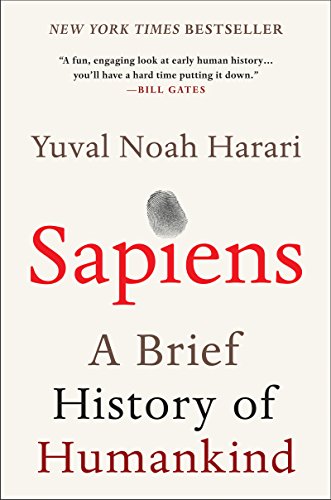

This article is an excerpt from the Shortform summary of "Sapiens: A Brief History of Humankind" by Yuval Noah Harari. Shortform has the world's best summaries of books you should be reading.
Like this article? Sign up for a free trial here .
Some say capitalism is failing. Is it? How can we tell? Is there anything we can do about it?
Capitalists have reason to champion the system. It’s spurred economic, scientific, and imperial growth the way few other imagined realities have. But what happens in situations when it fails to work?
We’ll cover two critiques of capitalism that say that capitalism has failed.
Two Reasons Capitalism Is Failing
Reason #1. It Makes Us Vulnerable
Most capitalists believe that the government shouldn’t be involved in monitoring or controlling the market (although it’s fine for the market to wield control over the government). This is the idea of a free-market.
The problem is that no market is truly free of politics. The most important ingredient of a functioning capitalist economy is trust. If people don’t have trust in the future, they won’t buy shares or give out loans.
This trust is eroded when people cheat and steal, and a free market offers no protection against these dangers. It’s the job of governments to protect people from these dangers and enforce the law. The government has to be involved in the market to keep us safe. capitalism has failed because of the idea of the free market.
Reason #2. It Doesn’t Always Benefit Employees
Capitalism is built on Adam Smith’s assumption that employers will reinvest their profits and hire more employees. There are two primary reasons to doubt this assumption: monopolies and the slave trade. These indicate that capitalism is failing.
Capitalism Is Failing, Example: Monopolies
Capitalists say that if an employer doesn’t reinvest his or her profits and instead makes a profit by lowering wages and increasing work hours, the best employees will leave and find a new employer. This is the safeguard of capitalism, they say.
But in a monopoly, it gets harder for an employee to find a job somewhere else. This allows employees to take advantage of workers, and workers can do little about it. Capitalism is failing.
Capitalism Has Failed, Example: The Slave Trade
Historically, employers have also removed payment altogether. This was how the European slave trade started.
When Europeans developed large sugar plantations in America, Europeans started eating more and more sugar. The demand for sugar in Europe skyrocketed. But extracting sugar was labor-intensive, and not many paid workers wanted to spend their days under a hot sun in malaria-infested fields. They demanded a high payment.
But increasing worker wages meant increasing the cost of sugar, which would have made it too expensive for most Europeans. So the plantation owners got rid of payment altogether and exchanged contract laborers for slaves. This made sugar cheaper, and it also made it a profitable business to have a share in. In the 18th century, investments in the slave trade could yield 6% per year.
The Atlantic slave trade wasn’t necessarily the result of racism. People who owned plantations and Europeans who bought stock lived far from the plantations and never thought much about the slaves. It was the money in their pockets that kept the slave trade going. The slave trade still functions around the world: capitalism is failing.
Taking monopolies, slavery, and other types of exploitation into account, there’s no way for free-market capitalism to make sure that wealth is distributed fairly or earned justly. Capitalism doesn’t ensure equality.
———End of Preview———

Like what you just read? Read the rest of the world's best summary of "Sapiens" at Shortform . Learn the book's critical concepts in 20 minutes or less .
Here's what you'll find in our full Sapiens summary :
- How Sapiens outlived and outlasted the 8+ other human-like species on Earth
- The 3 critical revolutions in human existence that led to our domination of the planet
- How much of what powers our world today is really just a shared mass delusion
- What the future of humanity might look like






